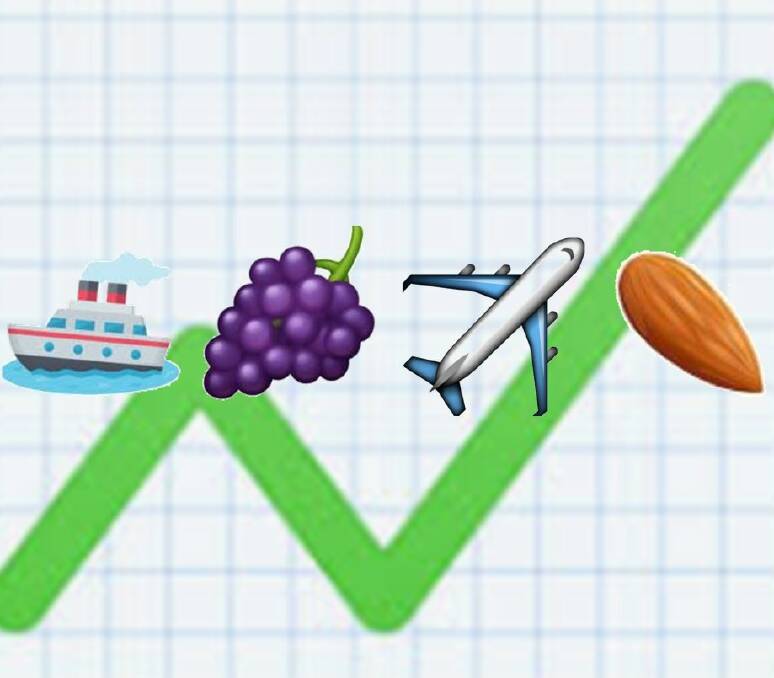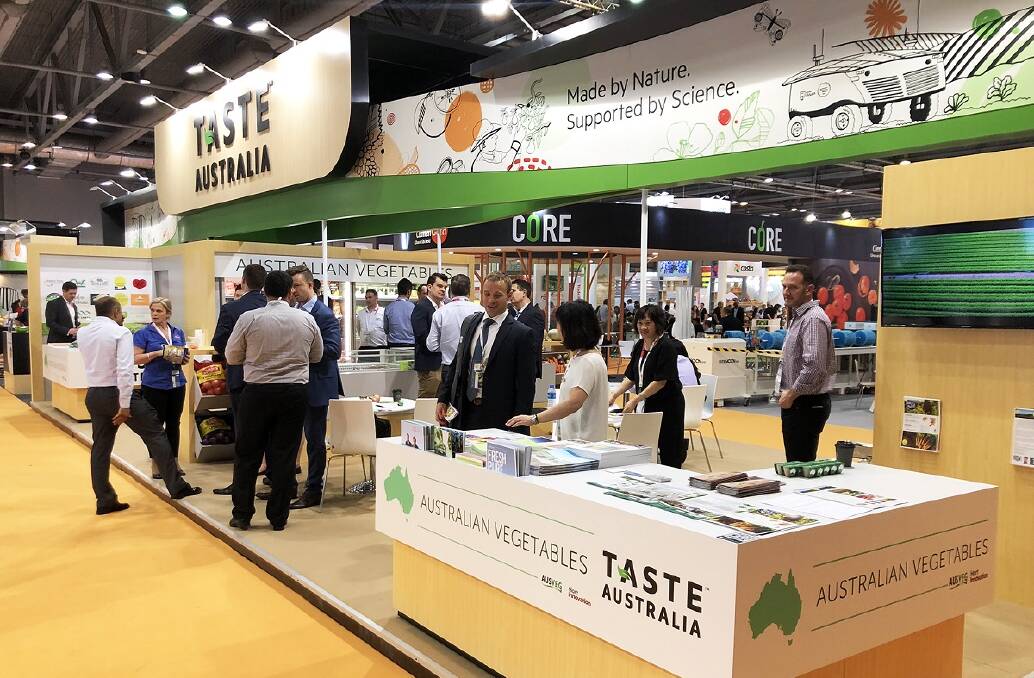
AUSTRALIAN horticulture exports have nearly cracked the $2.8 billion mark, setting a new record for the industry.
Subscribe now for unlimited access to all our agricultural news
across the nation
or signup to continue reading
Global Trade Atlas figures have shown a 27 per cent increase on the 2017-2018 financial year, with nuts and table grapes leading the charge.
Table grape exports boasted a 45pc increase on the previous year, surpassing the half a billion-dollar mark reaching $555 million
Australian nut exports reached $1 billion in export value.
The trade value for almonds alone reached $675 million, making it the most valuable export crop with a year on year growth of 53pc.
RELATED READING
Fresh vegetable exports also grew 18pc over the last financial year and are now valued at $321 million.
Hort Innovation head of trade, Dianne Phan, said the figures showed the commitment of homegrown producers to globalise their high-quality produce, as well as investments from industry, government and Australian growers.
"We have worked incredibly hard together with industry, the Australian Government, our growers and our international trade partners to build demand for our premium produce in an increasingly competitive international market," Ms Phan said.
"As a result of in-market initiatives under the Taste Australia brand, consumer research projects, trade events and in-store retail campaigns, Australian horticultural produce has never been more popular - particularly in Asian markets, Europe, and the Middle-East where consumers enjoy high-quality products."
"Our work with industry partners, coupled with the Australian reputation for delivering high-quality produce that complies with rigorous standards along every stage of the supply chain has been a key driving force in this achievement."
Let's not discount the achievements for onion exports in regaining ground, plus some, to achieve volumes not seen in several years.
- Andrea Magiafoglou, AHEIA
Australian Horticultural Exporters' and Importers' Association chief executive officer, Andréa Magiafoglou, said indications were that exports have exceeded expectations yet again, with the strong potential for horticulture export volumes and values to achieve record breaking results.
She said it was magnificent to see such outcomes for both nuts and table grapes as well as other crops.
"Let's not discount the achievements for onion exports in regaining ground, plus some, to achieve volumes not seen in several years," Ms Magiafoglou said.
"It is a commendable outcome demonstrating the tenacity of industry in what can be a volatile and challenging export environment."
"A collaborative approach with grower groups, industry stakeholders and the Department of Agriculture is paying off with positive outcomes underpinned by a favourable Australian dollar."
But growers looking to make inroads to foreign markets need to consider market diversification, targeted strategies and the delivery of high quality Australian produce.
These points will be key in a future export environment influenced by non-tariff measures impacting trade, political uncertainty and a highly competitive international market, according to the AHEIA.
Ms Phan said international interest in Australian produce was set to dominate discussion once again at this week's Asia Fruit Logistica (AFL) in Hong Kong that will feature around 70 Australian producers showcasing their fresh produce.
She said this year's trade show will also feature representation from the Australian melon and banana industries for the first time.

"Recent trade data shows that exports to Australia's largest horticultural trading partner, China, has almost doubled over the past financial year from $424 million to $834 million," she said.
"We have built a strong reputation across Asia as a premium horticultural producer, which we hope to further leverage through consistent trade show presence and oversees engagement.
"Under the Taste Australia trade initiative, we are taking a piece of Australia into homes across the world. AFL is the flagship event, but over the next 12 months we will lead the charge with 300 growers in tow to showcase locally grown premium produce to international markets in mainland China, Tokyo and Dubai."

